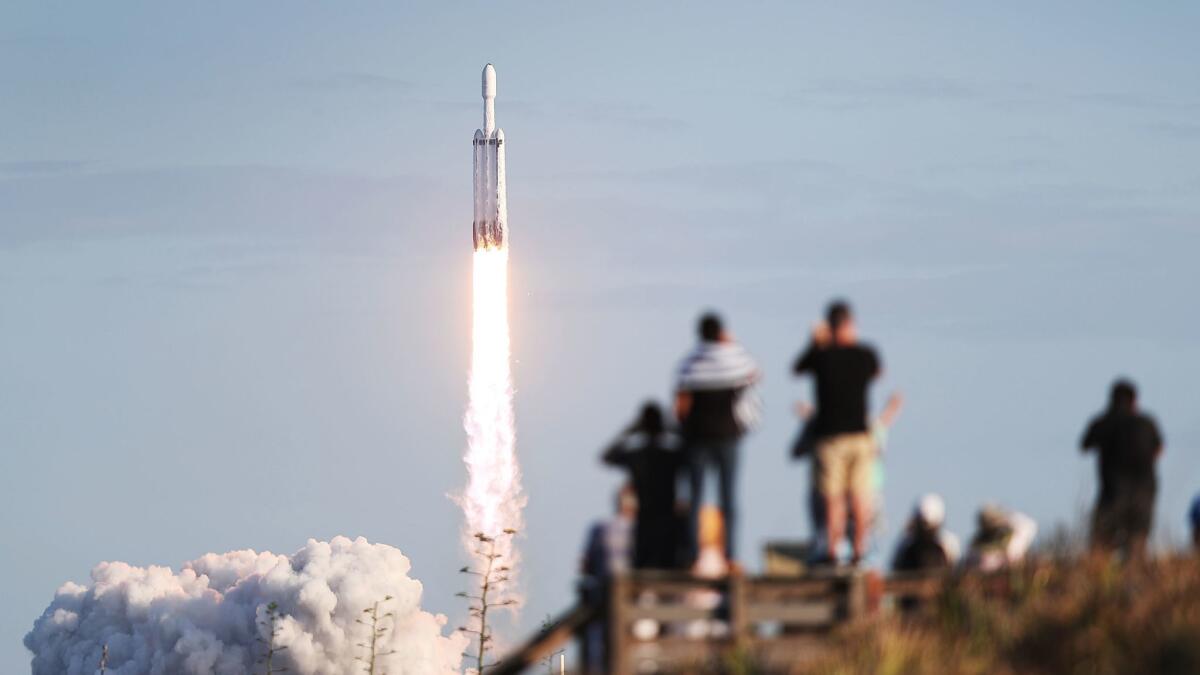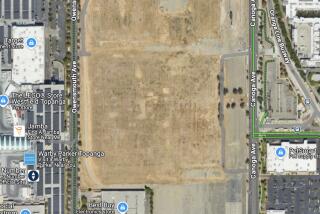Engineer falsified reports on critical SpaceX rocket parts, prosecutors say

An employee of a now-defunct New York aerospace supplier has been charged with falsifying at least three dozen quality-assurance reports for parts that went into SpaceX rockets, prosecutors said Wednesday.
James Smalley, 41, of Penn Yan, N.Y., forged signatures on inspection reports for parts that were used for the Falcon 9 and Falcon Heavy rockets while he worked at PMI Industries LLC, a Rochester firm that specialized in “high-tolerance machining for flight-critical aerospace parts,” according to a complaint filed by the U.S. attorney’s office in the Western District of New York.
If convicted, Smalley could face a maximum penalty of 10 years in prison and a $250,000 fine, prosecutors said.
Smalley could not be immediately reached for comment. He made an initial court appearance Thursday afternoon but did not enter a plea, as expected. Smalley was released on routine conditions and a status hearing is scheduled for July.
Last year, Hawthorne-based SpaceX completed 21 launches using its workhorse Falcon 9 rocket, including missions for NASA, the Air Force and commercial customers. It also launched its Falcon Heavy rocket for the first time, carrying Chief Executive Elon Musk’s Tesla Roadster as a test payload.
SpaceX said its audit process caught the problem and that the company “promptly” reported the concern. That led to the prosecution of Smalley, a quality-assurance engineer.
In January 2018, an internal audit directed by SpaceX and conducted by a subcontractor specializing in quality assurance found signatures supposedly from one of the subcontractor’s inspectors on “multiple” source-inspection reports and testing certifications from PMI, according to the complaint.
Prosecutors said they believed the inspector’s signature was photocopied and “cut and pasted” onto the reports with a computer. According to the complaint, Smalley told FBI agents that he forged inspector signatures about 15 to 30 times on the final reports and that he came up with the idea on his own.
The complaint said there were at least 31 cases in which Smalley sent falsified reports to SpaceX and shipped “uninspected or nonconforming parts” to the company. Smalley told a PMI executive looking into the matter that he cut and pasted the inspector signature onto reports because he “wanted to ship more product,” according to the complaint.
The U.S. attorney’s office said all of the parts had been identified, and SpaceX found that they were used in six NASA missions and one mission for the Air Force. All those missions were successfully completed, including NASA’s Transiting Exoplanet Survey Satellite, or TESS, which launched in April 2018. The bad parts were to be used in three future missions for NASA, the Air Force and the National Oceanic and Atmospheric Administration, according to the complaint.
PMI manufactured multiple parts for SpaceX, including a fairing, or nose cone, that protects satellites on their way to orbit, according to the complaint.
SpaceX ended its business relationship with PMI, and the manufacturer shut down because of the lost business, which averaged about $200,000 a month, according to the complaint. About 35 employees lost their jobs.
Over the years, aerospace and defense companies as a whole have moved toward less vertically integrated supply chains — that is, relying more on outside suppliers. But that can make “tracking, tracing and accountability … more complicated to manage,” said Luigi Peluso, managing director in the aerospace, defense and airlines practice at consulting firm AlixPartners. To handle this, most of the industry relies on audits and documentation of work performed, he said.
There have been numerous examples of subcontractors submitting allegedly fraudulent test results for aerospace parts. Earlier this month, a NASA investigation found that a metals manufacturer falsified thousands of test results over 19 years and provided faulty parts to the agency. The bad parts were used in rockets made by Orbital ATK, resulting in two failed satellite launches, NASA said.
In the late 1980s, federal authorities investigated several San Fernando Valley-area companies for allegedly selling counterfeit aerospace parts or faking safety test results for parts.
More to Read
Inside the business of entertainment
The Wide Shot brings you news, analysis and insights on everything from streaming wars to production — and what it all means for the future.
You may occasionally receive promotional content from the Los Angeles Times.









